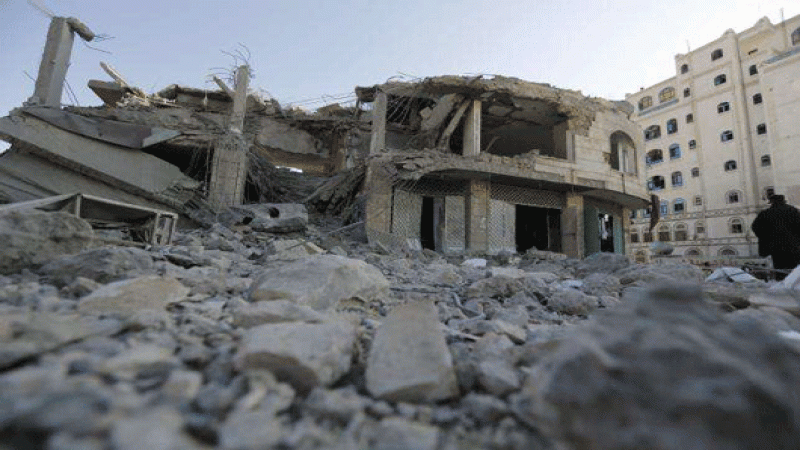
Local Editor
Air strikes by the Saudi-led military coalition in Yemen have killed at least 136 civilians and non-combatants since Dec. 6, the U.N. human rights spokesman said on Tuesday.
Other U.N. officials said the coalition was maintaining tight restrictions on ships reaching Yemen even though 8 million Yemenis are on the brink of famine with the country relying on imports for the bulk of its food, fuel and medicine.
“We are deeply concerned at the recent surge in civilian casualties in Yemen as a result of intensified air strikes by the ... coalition, following the killing of former president Ali Abdullah Saleh in Sana’a on Dec. 4,” human rights spokesman Rupert Colville told a news briefing.
Incidents verified by the U.N. human rights office included seven air strikes on a prison in the Shaub district of Sana’a on Dec. 13 that killed at least 45 detainees.
Other air strikes killed 14 children and six adults in a farmhouse in Hodeida governorate on Dec. 15, as well as a woman and nine children returning from a wedding party in Marib governorate on Dec. 16, he said.
Air strikes verified by the U.N. rights office in Sana’a, Saada, Hodeida and Taiz governorates also injured 87 civilians.
“If in a specific event due precaution is not taken or civilians are deliberately targeted, that can easily be a war crime,” Colville said.
It is up to a court to make a ruling, he said, but there had been so many similar incidents in Yemen, it would be hard to conclude war crimes had not taken place.
The restrictions on access to Yemen imposed by the coalition became a total blockade on Nov. 6 though conditions were eased on Nov. 25 to allow aid ships and some commercial cargoes to reach the shattered Arabian Peninsula country.
The U.N. World Food Program has brought in enough food for 1.8 million people for two months, but far more is needed.
Source: News Agencies, Edited by Website Team